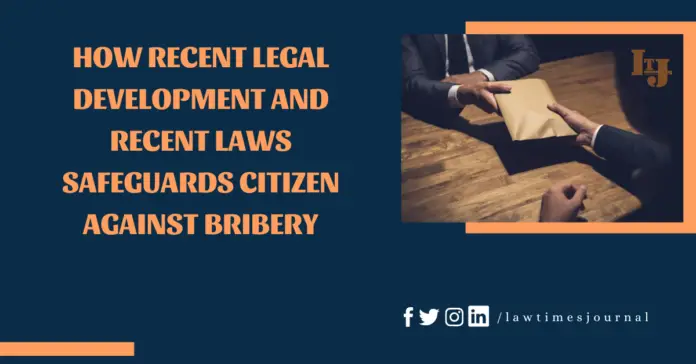
Have you ever went to a police station for a passport verification, if yes, then I am sure that 90% of you would have been asked for bribe by those officers and most of us have paid that bribe also, because it is the only way in our country to get our work done fastly and smoothly. But is it correct? Is it a sign of responisble citizen? Is it legal?
“Power tends to corrupt, and absolute power corrupts absolutely.” Corruption is lack of integrity, favour certain advantages and remain inconsistent with official duty and other’s rights. A citizen is one of the supreme pillars of the country. They are entitled to avail all the legal rights and privileges provided by a state to the people bound by its constituency and are obligated to oblige its laws and to accomplish his or her duties as called upon. We all are citizens of our country and carry several rights and responsibilities towards our community, state, and country.
Each citizen carries a responsibility to make their community a decent place to inhabit. When you are a responsible citizen, it is assumed that you know your duty appropriately and will work for numerous things that are needed by the community or the society in general.It is against the duty of an individual to follow any unethical pactice that means either to take bribe or to give bribe.
Corruption has a devastating and crippling effect. An amendment has been made to safeguard the citizen againt bribery and to stop the devasting effect of corruption in the country, India ranks at the 80th position among 180 countries and territories in the Corruption Perception Index (CPI) prepared by Transparency International. In India, the law relating to corruption is generally governed by the Indian Penal Code, 1860 and the Prevention of Corruption Act, 1988 (as amended from time to time). The new amendments to POCA was passed by both houses of Parliament and received the assent of the President on July 26, 2018. India is also a member to the UN Convention against Corruption since 2005. The Convention covers wide range of acts of corruption and also provides certain preventive policies.
According to this recent judicial development (amendment), Bribe givers can now be punished with a jail term of maximum of seven years under the new anti-corruption law that has got assent from President Ram Nath Kovind. Besides, public servants like politicians, bureaucrats and bankers among others have also been given a ‘protection’ from prosecution in the legislation that makes it compulsory for investigating agencies such as CBI to take prior approval from a competent authority before carrying out any enquiry against them.
The Act, also states that such permission shall not be necessary for cases including on the spot arrest of a person on the charge of taking or attempting to take any unjustified advantage for himself or for any other person.
However, to protect the person who give bribe under coercion, the Act provides that “the person so compelled” would have to report the matter to the law enforcement authority or investigative agency within seven days.
For bribe takers, the amended law has increased the punishment for a minimum of three years of imprisonment, which may extend to seven years, besides fine. This amendment will work as boon for the country, the law will safeguards the citizens from the unethical practices from the corrupt officers or the bribe takers.
These recent amendments to POCA have raised the stake for companies that operate in India, in relation to the corrupt activity by their corporate officers, employees and even third parties that they work or contract with.While the time will tell as to the nature and extent of enforcement by the authorities regarding these enacted provisions.
Others Law governing unethical practices against corruption are Indian Penal Code, 1860,The Benami Transactions (Prohibition) Act, 1988 which prohibits benami transactions.
Key Features of these acts related to corruption are:
Indian Penal Code, 1860:
- IPC defines “public servant” as a government employee, air force; police, officers in the military, navy judges, officers of Court of Justice, or any local authority established by central or state Act.
- Section 169 applies to a public servant unlawfully bidding for property or buying. The public servant must be punished with imprisonment upto two years or with fine or both and if the property is purchased then it shall be confiscated.
- Section 409 applies to criminal breach of trust by a public servant. The public servant must be penalized with life imprisonment or with imprisonment of upto 10 years and fine.
The Benami Transactions (Prohibition) Act, 1988
- The Act prohibits any benami transaction except when any person purchases property in his wife’s or unmarried daughter’s name.
- Any person who enters into a benami transaction shall be punished with imprisonment of upto three years or fine.
- All properties that will held to be benami will be acquired by a prescribed authority and no amout shall be paid for such acquisition
Edited by Pushpamrita Roy
Approved & Published – Sakshi Raje





